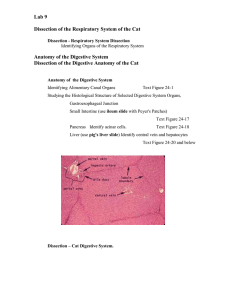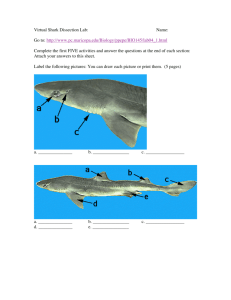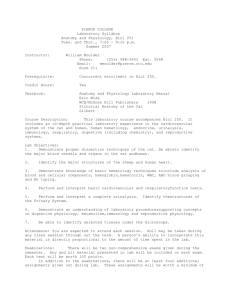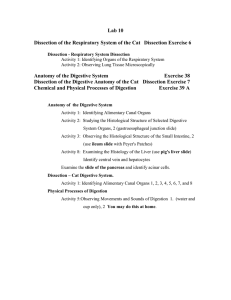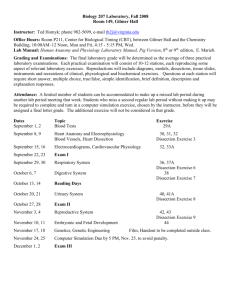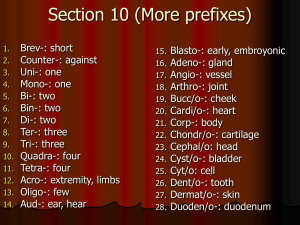Lab 10
advertisement
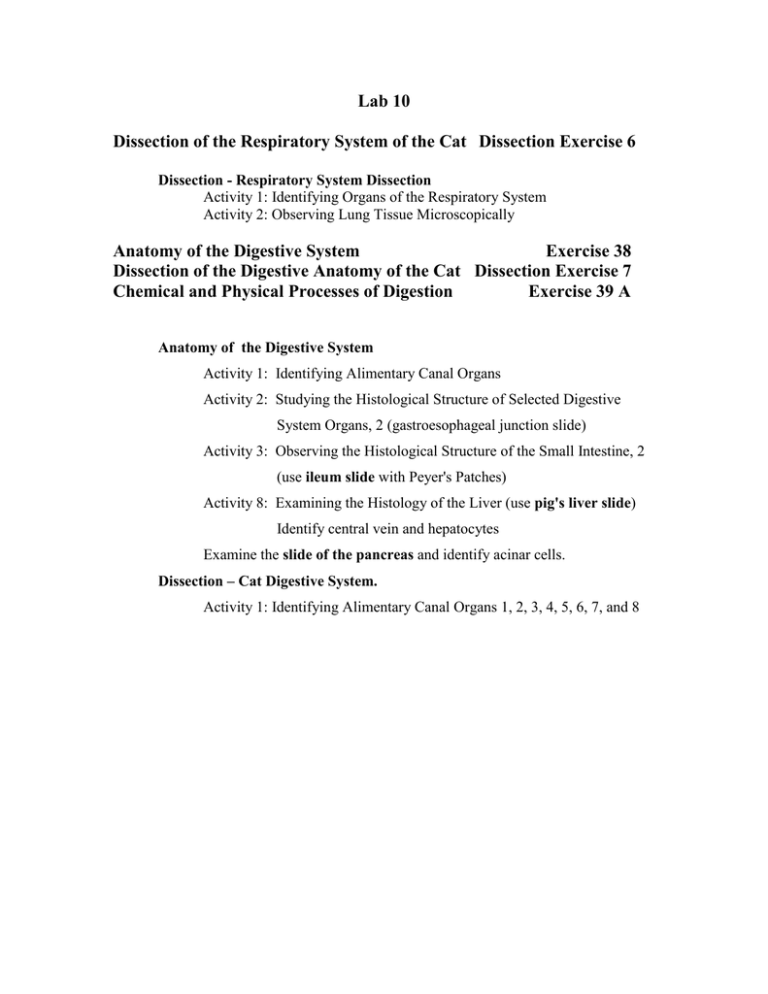
Lab 10 Dissection of the Respiratory System of the Cat Dissection Exercise 6 Dissection - Respiratory System Dissection Activity 1: Identifying Organs of the Respiratory System Activity 2: Observing Lung Tissue Microscopically Anatomy of the Digestive System Exercise 38 Dissection of the Digestive Anatomy of the Cat Dissection Exercise 7 Chemical and Physical Processes of Digestion Exercise 39 A Anatomy of the Digestive System Activity 1: Identifying Alimentary Canal Organs Activity 2: Studying the Histological Structure of Selected Digestive System Organs, 2 (gastroesophageal junction slide) Activity 3: Observing the Histological Structure of the Small Intestine, 2 (use ileum slide with Peyer's Patches) Activity 8: Examining the Histology of the Liver (use pig's liver slide) Identify central vein and hepatocytes Examine the slide of the pancreas and identify acinar cells. Dissection – Cat Digestive System. Activity 1: Identifying Alimentary Canal Organs 1, 2, 3, 4, 5, 6, 7, and 8 Name____________________________ Lab Section ________________ Dissection Questions – Respiratory and Digestive Systems 1. Are the cartilage rings of the human trachea complete or incomplete? ____________ 2. Are the cartilage rings of the cat trachea complete or incomplete? ____________ 3. Describe the location of the epiglottis and the vocal cords. 4.. Describe the appearance of the end of the trachea and the bronchial tree in the cat lung after you have pushed away the lung tissue from the cartilage. 5. Describe the appearance of cat lung tissue as seen under the dissecting microscope. Relate your observations under the microscope to what you know about alveolar structure. 6. Differentiate between the hepatic duct and the cystic duct. 2 points 7. Where does the bile duct enter the duodenum? 8. Differentiate between mesentery and mesocolon. 2 points 9. a. How does the appearance of the villi differ in the duodenum and ileum? 2 points b. How does the difference relate to function? 10. Does the cat have an appendix? ________ e. Draw a figure of the pancreas slide. Label islets of Langerhans and acinar cells. Print and use a ruler. Use the 40X lens. 11. Draw an example of what you observed on the liver slide. Label central vein and hepatocytes. Print and use a ruler.
